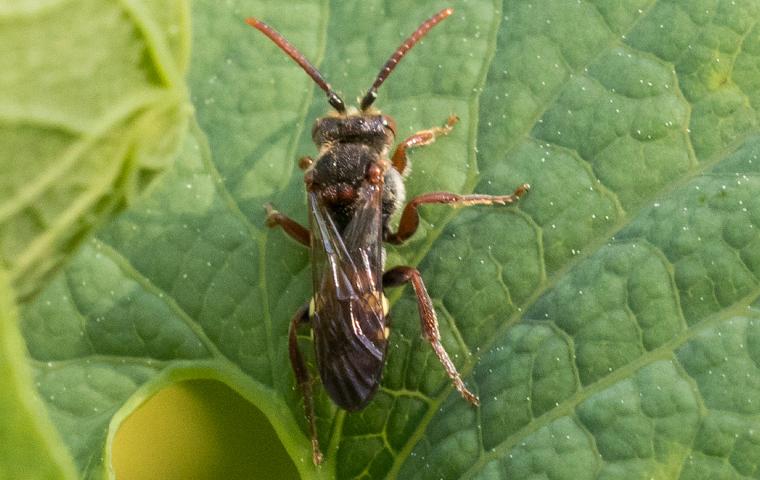CHINCH BUG IDENTIFICATION & PREVENTION
(Blissus leucopterus
FREE QUOTE
Request Your Free, No Obligation Quote

What are chinch bugs?
A lawn and garden pest, the chinch bug thrives in the Texas heat and is a common problem for property owners in Tarrant County. Adult chinch bugs are small, around three-sixteenths of an inch, and have black or dark brown bodies and fully developed wings. The wings are frosty-white except for a distinctive triangular black marking at the middle edge of the wings. Newly hatched nymphs are an orange-red color with a pale band traveling across the abdomen.

Are chinch bugs dangerous?
Why do I have a chinch bug problem?
Chinch bugs are on your Arlington property because it is offering them a source of food. Some of their favorite food sources include:
- St. Augustine grass
- Bunch and turf grasses
- Weeds
- Corn, rice, wheat, and other crops
Where will I find chinch bugs?
Chinch bugs live in a variety of locations, including our yards and crop fields. Open sunny areas tend to be the most affected by these pests. In Texas, these pests are most active in the summer when the weather is hot and dry. During the cooler winter months, the adults become inactive and do not feed.
How do I get rid of chinch bugs?
Lawn pests like chinch bugs are frustrating to deal with and can quickly turn our lawns from green and healthy to brown and unsightly. At Trees Hurt Too, we will work with you to eliminate chinch bugs from your yard and implement the services necessary to prevent their return. Using eco friendly products, our licensed plant health care professionals will take back your yard from damaging chinch bugs.
Tree Hurt Too, Inc., is a locally owned and operated company, and we have a deep understanding of the lawn care needs of home and business owners located in Tarrant County, TX. To learn more about our lawn care packages, give us a call today, and speak with one of our helpful professionals!
How can I prevent chinch bugs in the future?
Limit the chances of your yard becoming a home to chinch bugs with the following prevention tips.
- Make sure your lawn is well irrigated and aerated. Chinch bugs prefer dry soil; keeping the soil in your yard damp goes a long way in preventing problems with chinch bugs.
- Don’t mow your property’s grass too short.
- Remove thatch (dead grass and weeds) from your yard.
- Make sure your grass is maintained and properly fertilized. Over-fertilizing your lawn will attract chinch bugs.
Our Texas Service Area
LATEST BLOGS
Stay informed about pests and pest related issues in your area!
There’s nothing quite like the sight of a majestic tree adorning your landscape. But when those once-vibrant leaves start to […]
If you’ve ever stepped outside to enjoy your garden or yard only to find yourself under attack from a swarm […]
In the diverse landscapes of North Texas, a fascinating world unfolds right beneath our feet—one populated by countless species of […]




